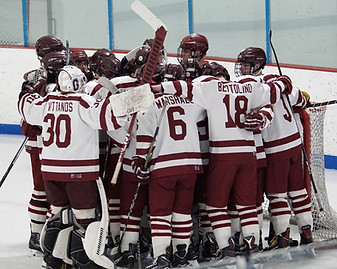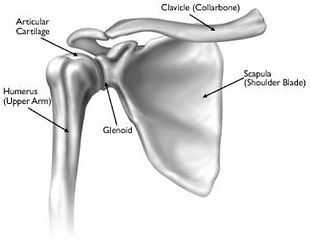*Reminder: Coastal Orthopedics requires that any outstanding balances are paid at check-in for your appointment. Thank you for your cooperation.
TELEHEALTH, PHONE AND URGENT SAME DAY APPOINTMENTS AVAILABLE
BEVERLY | DANVERS | GLOUCESTER

SPORTS MEDICINE & TOTAL SHOULDER REPLACEMENT
Sports Medicine is a broad category that includes prevention, evaluation, surgical and nonsurgical treatment, and rehabilitation of sports related injuries.
Sports injuries are not age specific; they can start in youth soccer, high school varsity, club events, college, professional sports, senior golf and tennis leagues. Your aches and pains can develop as a weekend warrior, a work-related injury, or even an accident that occurs while walking your dog. The sports medicine physicians at Coastal Orthopedic Associates are fellowship trained sports medicine specialists, and our job is getting you back into the games and activities that you enjoy.
Common sports injuries include ACL tears, meniscus cartilage tears, ligament and labral injuries in the shoulder, and rotator cuff tears. Nonsurgical treatment options may be used for many of these sports related injuries. Treatment can include activity or equipment modifications, specific muscular training, cross training techniques, and selective use of steroid or joint lubrication materials.
Our physicians can treat many of the more serious injuries with arthroscopic surgery. Arthroscopic surgery utilizes small cameras the size of a pen, pumping fluid through a joint to aid in visualization, with small incisions, as outpatient procedures. The pain that was associated with older techniques and the recovery time has dramatically improved.
For healthy patients, you may be able to have your surgery in an Ambulatory Surgical Center, (ASC), which is a less costly option. Our sports medicine surgeons have the option of performing select procedures at Atlantic Coast Surgical Center in Seabrook, NH. This state of the art facility specializes in orthopedic procedures. We also perform surgery at Beverly Hospital and Lahey Outpatient Center-Danvers.
The sports medicine team at Coastal Orthopedic Associates places a high emphasis on patient education and patient-optimization. Our team works closely with highly skilled physician assistants and clinical support staff to provide you the care and attention that you deserve throughout the care process.

Meet the Sports Medicine Specialists at Coastal Orthopedics:

Jaipal Gandhi, M.D.
Sports Medicine & Joint Replacement of the Shoulder

Edward Schleyer, M.D
Adult and Pediatric Sports Medicine
TOTAL SHOULDER REPLACEMENT
Total shoulder arthroplasty (TSA), often called a total shoulder replacement, is a surgical procedure in which part or all of the shoulder joint is replaced. Although shoulder joint replacement surgery is less common than knee or hip replacement, it is just as effective in relieving joint pain. Total shoulder replacement can help patients return to their previous levels of physical activity, including fitness training, or participation in sports like swimming or golf.
There are several reasons that your surgeon may recommend shoulder replacement surgery. If you find that non-surgical treatments such as medications and activity changes are not effective for relieving pain, or if you find that you have severe pain that interferes with everyday activities, such as reaching into a cabinet, dressing, using the bathroom and washing, moderate to severe pain while resting that prevents you from sleeping or loss or motion and or weakness in the shoulder, you may be candidate for this procedure.
In addition to the symptoms listed above, a shoulder replacement may be needed if you have any of the following conditions affecting the shoulder, causing severe shoulder pain and limiting your ability to use the affected shoulder:
-
Osteoarthritis
-
Rheumatoid arthritis
-
Severe shoulder fracture
-
Rotator cuff disease (a muscle tear or soft-tissue breakdown of the rotator cuff)
-
Osteonecrosis of the shoulder (death of the bone tissue at the head of the humerus)
Your surgeon will go over the risks and benefits of the procedure with you in depth and together you will make the decision that is best suited for your individual circumstances. mobile as possible up until the time of surgery.
Shoulder Anatomy:
Your shoulder is made up of three bones: your upper arm bone (humerus), your shoulder blade (scapula) and your collarbone (clavicle). The shoulder is a ball and socket joint: The ball, or head, of your upper arm bone fits into a shallow socket in your shoulder blade. The socket is called the glenoid.

The surfaces of the bones where they touch are covered with articular cartilage, a smooth substance that protects the bones and enables them to move easily. A thin, smooth tissue called synovial membrane covers all remaining surfaces inside the shoulder joint. In a healthy shoulder, this membrane makes a small amount of fluid that lubricates the cartilage and eliminates almost any friction in your shoulder. The muscles and tendons that surround the shoulder provide stability and support. All of these structures allow the shoulder to rotate through a greater range of motion than any other joint in the body.
In shoulder replacement surgery, the damaged parts of the shoulder are removed and replaced with artificial components.
Due to various physical limitations, your orthopedic surgeon may decide that you are a candidate for another form of TSA, such as:
-
Shoulder hemi-arthroplasty, where only the head of the humerus is replaced with a metal ball.
-
Reverse TSA, where the metal ball and plastic socket are reversed. This procedure is recommended when the rotator cuff muscles of the shoulder are damaged. The plastic socket is attached to the top of the humerus, and the metal ball is attached to the socket. This procedure allows another shoulder muscle, called the deltoid, to take over for the damaged rotator cuff muscles, improving functional range of motion, strength, and stability of the shoulder

Before Surgery
The better physical condition your shoulder is in prior to surgery, the better your recovery will be. We may require you to attend physical therapy prior to surgery so that you may work to build shoulder strength, and improve your shoulder and upper back movement to keep the shoulder as strong and mobile as possible up until the time of surgery.
After Surgery
Most likely you will attend physical therapy after your surgery and you will work on regaining your strength and function through range of motion exercises, strengthening exercises and/ or functional and job or sports related training. You will be provided with clear instructions pre and post operatively by our sports medicine team of clinicians and supported through each step of the process.
Here are some helpful shoulder articles, videos, and resources provided by the American Academy of Orthopaedic Surgeons (AAOS) to help manage your bone and joint health:
Hip articles, videos, and resources to help manage your bone and joint health:
Knee articles, videos, and resources to help manage your bone and joint health:
The STOP Sports Injuries website offers all the information you need to keep kids in the game for life. Whether you are an athlete, coach, healthcare provider or parent. This website is a great resource for sports injury prevention tips and tools to make sure safety is your first priority.
At Coastal Orthopedics, you can schedule an orthopedic appointment by phone at 978-927-3040,
submit our online form, or walk in to one of our three locations in Danvers, Gloucester or Beverly, MA.

